Lajos Őze
出生 : 1935-04-27, Szentes, Hungary
死亡 : 1984-10-21

Ezredes (as Õze Lajos)
The seeming hopelessness of combatting an all-powerful government that will not tolerate political dissension is the focus of this excellent historical drama set in the mid-19th century in Hungary. In the opening scenes, Hungary has just lost its bid for independence from Austria and a Magyar officer, unable to bear the tragedy of defeat and what it means, says an affectionate good-bye to his beloved horse and then shoots the animal and himself. Two years later, Ferenc (Gyorgy Cserhalmi) is trying to eke out a living for his wife and her family -- and at the same time avoid any hint of sympathy for Hungarian independence because the Secret Police are everywhere. Just as life seems to be going well, Ferenc's former commanding officer (Lajos Oze) arrives and begins discussing revolution again -- a futile pursuit at this point in time. The next day, Ferenc is thrown into an insane asylum and everyone else is arrested as well.

Three generations live side by side. The wilful, jack-in-all-pots grandmother blackmails the family with fake faintings, while grandpa suffers from cerebral sclerosis. Mother manages a fashionable hotel, she needs to look smart and unyielding, even when their weird uncle drives into the restaurant drunk. Father is an introverted, solitary teacher, who from time to time turns the home inside out in pursuit of his hobby, i.e. topography, and his mental balance. Suddenly unexpected things come to light about their teen-age daughter, Juli.

Zimányi - főszerkesztő
The Hungarian Oh, Bloody Life reflects on the heavy emotional toll taken by the repressive Stalin regime. Dorotya Udvaros plays a young actress from a high-born family. The government bias against persons of wealth threatens to destroy her career before it begins. As a final blow, she is threatened with deportation. The exasperation inherent in the film's title is only the tip of the iceberg.

Tárczai Balázs (as Õze Lajos)

Bodor
A Budapest high school in the beginning of the 1960s. Dini suffers the torments of adolescence. His father had to leave Hungary after the uprise in 1956, and since then Dini's mother has had to take care of her two sons on her own. A friend of Dini’s father, Bodor, is released from prison and moves in with them. Dini and his brother are far from happy about this intrusion on their family life.

In 1947 Dorottya is dismissed from girl school by the nuns for her views.
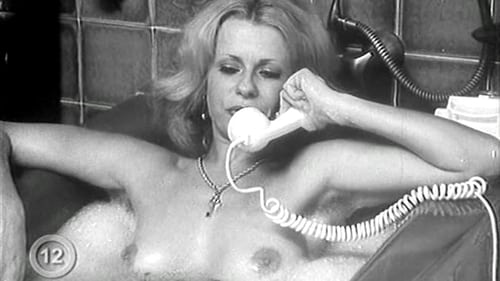
Laczina professzor
Lt. Kojak arrives in Budapest as a guest speaker for the 'International Crime Writers Conference'. Soon after he starts enjoying the pleasures that the city has to offer, he assists his old friends at the police department with a case. The case involves solving the murder of a noted scientist, unaware that a Mafia hit man and his female companion are targeting him.

The film is a true account of the drama of "non-action" on 14th and 15th of October, 1944. The Nazis, having a straightforward program, occupy Hungary with little or no difficulty, as the Hungarian political leadership had no unambiguous program for responding to possible steps of the Nazis. In spite of the secretly signed cease-fire agreement and proclamation, Horty gives up all plans of resistance at the news of the kidnapping of his son. The Nazis take over power and roll up the so-called conspiracy aimed at Hungary's breaking away from the German alliance.
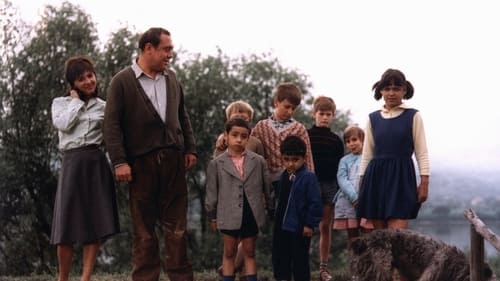
Árpád Virág
Hungary, 1950s. József Pelikán, who works as a dam keeper on the Danube, meets by chance Zoltán Dániel, an old friend whom he saved from death years before and who is now a powerful politician.

Hungary in the 1930s. The world suddenly changes around the peaceful office-clerk and regular, average petit-burgeois Kornél Cassius. Friends and relatives turn up in his home, who soon establish themselves there and even take the upper hand. They continue to arrive in increasing numbers, and turn the well-known objects and patterns of relationships upside down.

This film takes place in Paris and Geneva in the 1530s and 1550s. Kálvin János and Szervét Mihály are school mates in Paris. The university students celebrate the victory of the Reformation with Kálvin's "Institution", written under a pseudonym.

This sour and melancholic film recalls a few days of a forty-year-old woman in a crisis. Teréz is always disciplined but feels depressed and aimless after her divorce.

An adult educator arrives in the small-town factory with loads of books, energy and a freshly received diploma. The honest young man with dreamy eyes humanises the life of the plant, in a way distributing himself among people.
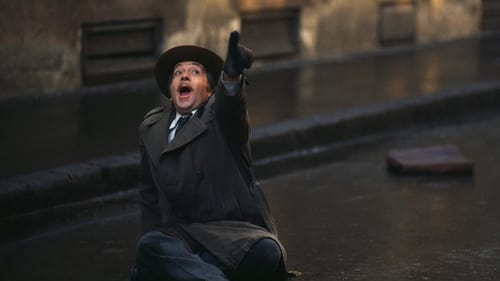
Mikló Gyuricza
In Budapest in 1944; a watchmaker, a bookseller, and a carpenter are drinking in a bar with the owner when they are joined by a stranger. The watchmaker asks a hypothetical question that will change their lives.

One day Novák Erzsébet kindergarten-teacher destroys her papers, cuts her hair and closes her mouth forever. She prepares for suicide namelessly, then somewhere around Normafa she accepts being taken into an asylum.

Dr. Zsák, féregirtó
Kicsi Dániel, the young virtuoso pianist gets a separate apartment in the ten-storey block of flats. He rehearses all the time, irregularly, day and night, disturbing thus the peace of the dwellers in the thin-walled house. Inquisition begins in the name of equal rights for inhabitants.

Juhász, 'százados' operatõr
Two arts students, András and Viktor who are writing their thesis on detective stories, make up a story and keep nagging the famous film-director, who just came back from Hollywood, until he undertakes the job. At night they work on the film, in which two youths kill a director returning from the US. In the morning the director is found dead - a knife in his back.

Juhász, 'százados' operatõr (as Õze Lajos)
Two arts students, András and Viktor who are writing their thesis on detective stories, make up a story and keep nagging the famous film-director, who just came back from Hollywood, until he undertakes the job. At night they work on the film, in which two youths kill a director returning from the US. In the morning the director is found dead - a knife in his back.

Poprádi

Three people skilfully kidnap the company director, who never takes the responsibility, takes sleeping pills and spends his time feeding ornamental fish. The kidnappers turn out to be no other than the Engineer, the Technician and the Worker, who only wanted to avoid bankruptcy this way.

Az író

Fülöp (as Õze Lajos)
The heroines of this lyric comedy full of burlesque elements are two girls from a village who get totally engrossed in their day-dreaming. Ida and Rozi escape to the city to catch husbands for themselves.

The two main characters of this ironic account of the general condition of intellectuals are the charming psychologist, Korin György, and the unexpected. Korin starts a television series of people in their 40s. In the afternoon just after the first section, however, he is reported to be dead as a result of a rather strange accident. Everything turns upside down.

Lajos - besúgó (as Õze Lajos)
The grotesque comedy with crime elements takes place in a grocery store.

Lukács Péter, rendező
This mocking criticism of public life and the media focuses on a TV series. The protagonist of the film, depicting the battles fought for Hungarian castles during the Ottoman occupation, is chosen to be the amateur Prohászka Feri, a worker in the beer-factory.

Ágoston, kecskeméti iparos
The 16th century Kecskemét troubled by both the Kurutses and the Labancs would like a Bey from the Buda pasha to defend them in exchange for four beautiful girls, but only gets a caftan. It was a good deal, however. All Muslims fall on their knees when they see the magic caftan and fulfil its owner's wish.

Berti

Józsi (as Õze Lajos)
Mihály, a retired foundryman has brought up his sons in a very disciplined and strict way, and as a result they have become a doctor, an engineer, and a teacher. However, his half orphan grandson, Misi, has been spoilt, and become skilled in nothing else really but riding his motorbike and going to parties. He has been involved in shady businesses a number of times already. Having experienced so many difficulties, privation and hardship in his own life and now seeing Misi's irresponsible lifestyle, the old man's bitterness is growing day by day.
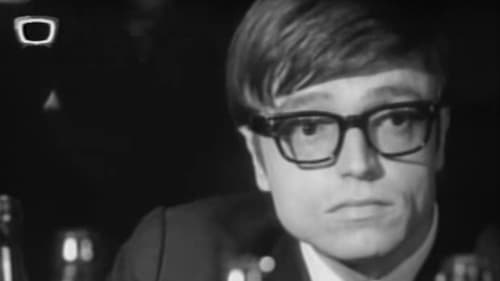
Pálfi Antal, rendezõ
Laci is facing maturation and he wants to work, but his intellectual parents want him to be at the university. Laci feels lonely, because back home the centre is his younger brother and he also deceived in Zsuzsa, his class mate. The girl is already an accomplished pop singer, member of the Illés, and she only returns the love of Laci as a friend. But through Zsuzsa he can meet the members of the well-established group, whose members even lend him their instruments for the concert of the school group. They also play together and another brown girl cheers him already.

Vallató II
After the failure of the Kossuth's revolution of 1848, people suspected of supporting the revolution are sent to prison camps. Years later, partisans led by outlaw Sándor Rózsa still run rampant. Although the authorities do not know the identities of the partisans, they round up suspects and try to root them out by any means necessary.
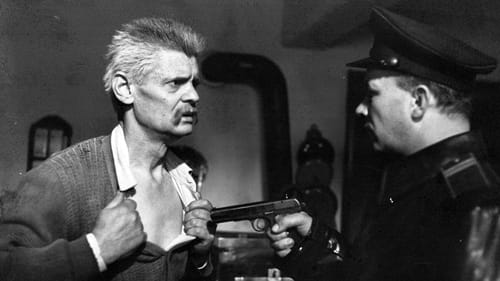
Kiskovács
A crusading newspaper reporter covers the Soviet invasion of Hungary in 1956. Initially critical of the communists, the feature later espouses the virtues of the social changes implemented since the invasion. The title refers to the period of time the reporter spent interviewing witnesses to the invasion.

Hazatérõ zsidó
In the final days of World War II, a young Hungarian is making his way home, through countryside full of the debris of war, when he is captured and imprisoned by Russians. Left in the custody of a young Russian soldier, the two youths form a friendship in spite of not speaking each other's language.

Terpinkó, the bragging man of muscle likes womanising linked with betting: conquering is a great fun for him. He bet one to a hundred on his new boss, Éva. But the wife of the engineer handles all his tricks with annoying benevolence. Terpinkó falls in love with her and therefore he cannot stand her not returning his feelings.

lieutenant Hugó Vallon
Merry soldiers arrive in the sleepy Transdanubian town. The cynical woman-hunter, Ferdinándy, learns to know doctor Barlay's beautiful wife at a carnival. She lives a happy married life, and the attentions of the lieutenant are all in vain.

A chain of short stories about the lives of the employees of the Ikarus bus factory.

On the eve of World War II, Major Benedek Zoltán is an embodiment of the service regulations in the army. He only discloses his feelings towards Anna, his brother's widow. An investigation is conducted in the regiment to identify Communists.

Sándor
This easy-to-take Hungarian drama is also known as Two Wishes. The prinicipal characters are a pair of juvenile delinquents, who may still be redeemable. The sullen duo is befriended by a kindly police inspector, who takes it upon himself to straighten out the boys. What follows cannot be termed surprsingly or innovative, though it is immensely satisfying. Of interest is the fact that a Communist-bloc film would admit to a delinquency problem in the so-called Worker's Paradise. Ket Vallomas was the Hungarian entry in the 1957 Cannes Film Festival.

Friend of Gyurka

Marci is drafted from a typical block building in the 6th district in Pest. He says good-bye to Juli living in the same house, with whom they are both very much fond of each other, but neither of them makes a confession. Juli works in a factory, and with her friend Gizus she goes out in the evening for dancing and drinking. After a year, Marci comes back for holiday, he is full of love.

Apa































